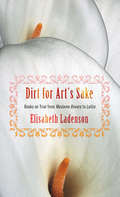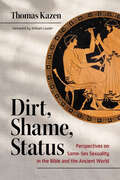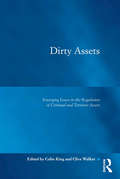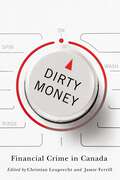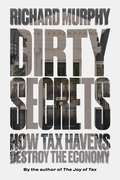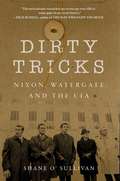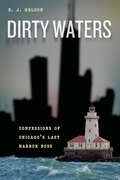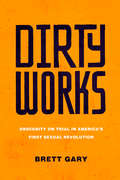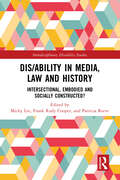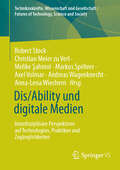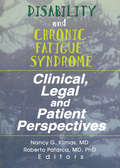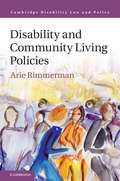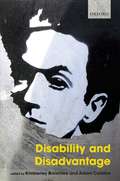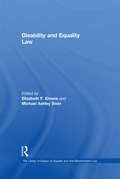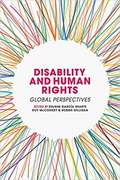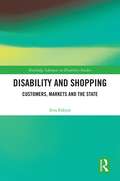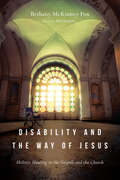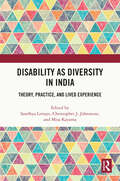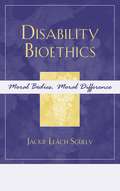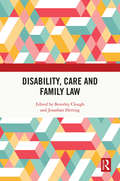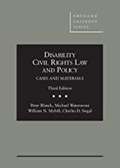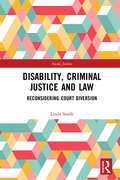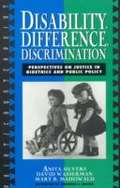- Table View
- List View
Dirt for Art's Sake
by Elisabeth LadensonIn Dirt for Art's Sake, Elisabeth Ladenson recounts the most visible of modern obscenity trials involving scandalous books and their authors. What, she asks, do these often-colorful legal histories have to tell us about the works themselves and about a changing cultural climate that first treated them as filth and later celebrated them as masterpieces? Ladenson's narrative starts with Madame Bovary (Flaubert was tried in France in 1857) and finishes with Fanny Hill (written in the eighteenth century, put on trial in the United States in 1966); she considers, along the way, Les Fleurs du Mal, Ulysses, The Well of Loneliness, Lady Chatterley's Lover, Tropic of Cancer, Lolita, and the works of the Marquis de Sade. Over the course of roughly a century, Ladenson finds, two ideas that had been circulating in the form of avant-garde heresy gradually became accepted as truisms, and eventually as grounds for legal defense. The first is captured in the formula ?art for art's sake'the notion that a work of art exists in a realm independent of conventional morality. The second is realism, vilified by its critics as ?dirt for dirt's sake. ' In Ladenson's view, the truth of the matter is closer to ?dirt for art's sake'the idea that the work of art may legitimately include the representation of all aspects of life, including the unpleasant and the sordid. Ladenson also considers cinematic adaptations of these novels, among them Vincente Minnelli's Madame Bovary, Stanley Kubrick's Lolita and the 1997 remake directed by Adrian Lyne, and various attempts to translate de Sade's works and life into film, which faced similar censorship travails. Written with a keen awareness of ongoing debates about free speech, Dirt for Art's Sake traces the legal and social acceptance of controversial works with critical acumen and delightful wit.
Dirt, Shame, Status: Perspectives on Same-Sex Sexuality in the Bible and the Ancient World
by Thomas KazenA scholarly examination of same-sex sexuality in the Bible in the context of the ancient world Scriptural prohibitions of same-sex sexual acts (so-called &“clobber passages&”) are often used as prooftexts to support the oppression of LGBT communities in the West today. However, such interpretation of these scant references ignores critical sociohistorical context from the ancient world. Analyzing a wealth of primary sources, Thomas Kazen brings biblical studies into conversation with the sexual norms and practices of the ancient world. Near Eastern, Greek, and Roman texts, including the Old and New Testaments, exhibit ancient concerns about hierarchy in sexual relationships. Examining references to sexuality through the lenses of power and subordination, honor and shame, and purity, Kazen sheds light on homophobic passages in the Bible. Special attention is given to the Levitical laws and the Pauline epistles. Ultimately, Kazen calls us to renegotiate the balance between our ancient heritage and our contemporary values. Carefully researched and accessibly presented, Dirt, Shame, Status lends readers insight into the diverse cultural influences on the Bible. Kazen&’s work offers an informed and important perspective on a controversial topic of perennial interest. Scholars, students, and all curious readers of Scripture will find this volume to be an indispensable resource for understanding complex ancient texts and contexts.
Dirty Assets: Emerging Issues in the Regulation of Criminal and Terrorist Assets (Law, Justice And Power Ser.)
by Colin King Clive WalkerAdopting a multi-disciplinary and comparative approach, this book focuses on the emerging and innovative aspects of attempts to target the accumulated assets of those engaged in criminal and terrorist activity, organized crime and corruption. It examines the ’follow-the-money’ approach and explores the nature of criminal, civil and regulatory responses used to attack the financial assets of those engaged in financial crime in order to deter and disrupt future criminal activity as well as terrorism networks. With contributions from leading international academics and practitioners in the fields of law, economics, financial management, criminology, sociology and political science, the book explores law and practice in countries with significant problems and experiences, revealing new insights into these dilemmas. It also discusses the impact of the ’follow-the-money’ approach on human rights while also assessing effectiveness. The book will appeal to academics and researchers of financial crime, organized crime and terrorism as well as practitioners in the police, prosecution, financial and taxation agencies, policy-makers and lawyers.
Dirty Entanglements
by Louise I. ShelleyThe entangled threat of crime, corruption, and terrorism now deserves high-level-policy attention because of its growth trajectory. Using lively case studies, this book analyzes the transformation of crime and terrorism and the business logic of terrorism. Louise I. Shelley concludes that corruption, crime, and terrorism will remain important security challenges in the twenty-first century as a result of economic and demographic inequalities in the world, the rise of ethnic and sectarian violence, climate change, the growth of technology, and the failure of nineteenth- and twentieth-century institutions to respond to these challenges when they emerged.
Dirty Money: Financial Crime in Canada
by Christian Leuprecht and Jamie FerrillFinancial crime in Canada remains a mystery: omnipresent, but we know little about its operation. Transactions are cloaked with apparent legality, which makes tracking criminal activity through economic or financial statistics a complex undertaking.This distinctive volume aims to stem in-, out-, and through-flows of vast sums of dirty money by enhancing Canada’s capacity to detect, disrupt, deter, investigate, and prosecute domestic financial criminals and transnational organized criminal organizations. It brings together leading scholars and practitioners from the public and private sectors to identify and explore deficiencies in federal and provincial policy, regulation, legislation, politics, institutions, and enforcement, as well as the international financial crime regime. Together contributors pinpoint weaknesses that have turned the Canadian federation into a destination of choice for global financial crime, where its perpetrators can operate with impunity.Dirty Money reveals how globalization and technology have spun an extensive web of clandestine processes that disguises how financial criminals operate, the channels they use, and how they suborn banks and institutions. In the process, the extent of financial crime in Canada and its corrosive effects on communities, democratic institutions, and prosperity becomes apparent.Contributors: Sanaa Ahmed, John Cassara, Garry Clement, Arthur J. Cockfield, Caroline Dugas, Jamie Ferrill, Cameron Field, Michelle Gallant, Peter German, Rhianna Hamilton, Todd Hataley, Caitlyn Jenkins, Christian Leuprecht, David Maimon, Katarzyna (Kasia) Mcnaughton, Denis Meunier, Pierre-Luc Pomerleau, Stephen Schneider, Jeffrey Simser.
Dirty Secrets: How Tax Havens Destroy the Economy
by Richard MurphyWhat happens when the rich are allowed to hide their money in tax havens, and what we should do about itThe Panama Papers were a reminder of how the superrich are allowed to hide their wealth from the rest of us. Dirty Secrets uncovers the extent of the corruption behind this crisis and shows what needs to be done in the face of this unregulated spread of rampant greed.Tax havens, we are often told, are part of the global architecture of capitalism, providing a freedom from regulation necessary to make markets work. In this book, leading authority Richard Murphy uncovers the truth behind this lie. The fact of the matter is that this increasingly popular practice threatens the foundations of democracy, sowing mistrust and creating a regime based upon opacity.As Murphy shows, how we manage our economy is a political decision, and one that can be changed. Dirty Secrets proposes ways to regulate tax havens and what the world might look like without them.
Dirty Tricks: The Dark Side of Democracy
by Shane O'SullivanThe victory of Richard Nixon in the US presidential election of 1968 swung on an “October Surprise”— a treasonous plot engineered by key figures in the Republican Party to keep the South Vietnamese government away from peace talks in Paris, costing thousands of American lives. There is growing evidence that the CIA was deeply involved in illegal domestic operations targeting Daniel Ellsberg, and in the Watergate break-ins during Nixon’s 1972 campaign, which ultimately led to his downfall. CIA Director Richard Helms’ relationship with Watergate burglar E. Howard Hunt was much closer than previously disclosed and the CIA agent inside the plot was sent on a double agent mission by American intelligence after he got out of prison. Drawing on newly-declassified files and previously-unpublished documents, Dirty Tricks debunks the myths around Watergate and deepens our understanding of the “dirty tricks” that undermined democracy during the Nixon years and destroyed public trust in politics during the seventies. These scandals turn on the covert action of two powerful interest groups—the senior CIA officers around Helms, and the key advisers around Nixon – in this chilling story of political espionage and deception.
Dirty Waters: Confessions of Chicago's Last Harbor Boss
by R. J. NelsonIn 1987, the city of Chicago hired a former radical college chaplain to clean up rampant corruption on the waterfront. R. J. Nelson thought he was used to the darker side of the law--he had been followed by federal agents and wiretapped due to his antiwar stances in the sixties--but nothing could prepare him for the wretched bog that constituted the world of a Harbor Boss. Director of Harbors and Marine Services was a position so mired in corruption that its previous four directors ended up in federal prison. Nelson inherited angry constituents, prying journalists, shell-shocked employees, and a tobacco-stained office still bearing a busted door that had been smashed in by the FBI. Undeterred, Nelson made it his personal mission to become a "pneumacrat," a public servant who, for the common good, always follows the spirit--if not always the letter--of the law. Dirty Waters is a wry, no-holds-barred memoir of Nelson's time controlling some of the city's most beautiful spots while facing some of its ugliest traditions. A guide like no other, Nelson takes us through Chicago's beloved "blue spaces" and deep into the city's political morass. He reveals the different moralities underlining three mayoral administrations, from Harold Washington to Richard M. Daley, and navigates us through the gritty mechanisms of the Chicago machine. He also deciphers the sometimes insular world of boaters and their fraught relationship with their land-based neighbors. Ultimately, Dirty Waters is a tale of morality, of what it takes to be a force for good in the world and what struggles come from trying to stay ethically afloat in a sea of corruption.
Dirty Works: Obscenity on Trial in America’s First Sexual Revolution
by Brett GaryA rich account of 1920s to 1950s New York City, starring an eclectic mix of icons like James Joyce, Margaret Sanger, and Alfred Kinsey—all led by an unsung hero of free expression and reproductive rights: Morris L. Ernst. At the turn of the twentieth century, the United States was experiencing an awakening. Victorian-era morality was being challenged by the introduction of sexual modernism and women's rights into popular culture, the arts, and science. Set during this first sexual revolution, when civil libertarian-minded lawyers overthrew the yoke of obscenity laws, Dirty Works focuses on a series of significant courtroom cases that were all represented by the same lawyer: Morris L. Ernst. Ernst's clients included a who's who of European and American literati and sexual activists, among them Margaret Sanger, James Joyce, and Alfred Kinsey. They, along with a colorful cast of burlesque-theater owners and bookstore clerks, had run afoul of stiff obscenity laws, and became actors in Ernst's legal theater that ultimately forced the law to recognize people's right to freely consume media. In this book, Brett Gary recovers the critically neglected Ernst as the most important legal defender of literary expression and reproductive rights by the mid-twentieth century. Each chapter centers on one or more key trials from Ernst's remarkable career battling censorship and obscenity laws, using them to tell a broader story of cultural changes and conflicts around sex, morality, and free speech ideals. Dirty Works sets the stage, legally and culturally, for the sexual revolution of the 1960s and beyond. In the latter half of the century, the courts had a powerful body of precedents, many owing to Ernst's courtroom successes, that recognized adult interests in sexuality, women's needs for reproductive control, and the legitimacy of sexual inquiry. The legacy of this important, but largely unrecognized, moment in American history must be reckoned with in our contentious present, as many of the issues Ernst and his colleagues defended are still under attack eight decades later.
Dis/ability in Media, Law and History: Intersectional, Embodied AND Socially Constructed? (Interdisciplinary Disability Studies)
by Micky LeeThis book explores how being "disabled" originates in the physical world, social representations and rules, and historical power relations—the interplay of which render bodies "normal" or not. Do parking signs that represent people in wheelchairs as self-propelling influence how we view dis/ability? How do wheelchair users understand their own bodies and an environment not built for them? By asking questions like these the authors reveal how normalization has informed people’s experiences of their bodies and their fight for substantive equality. Understanding these processes requires acknowledging the tension between social construction and embodiment as well as centering the intersection of dis/abilities with other identities, such as race, class, gender, sex orientation, citizen status, and so on. Scholars and researchers will find that this book provides new avenues for thinking about dis/ability. A wider audience will find it accessible and informative.
Dis/Ability und digitale Medien: Interdisziplinäre Perspektiven auf Technologien, Praktiken und Zugänglichkeiten (Technikzukünfte, Wissenschaft und Gesellschaft / Futures of Technology, Science and Society)
by Robert Stock Christian Meier zu Verl Melike Şahinol Markus Spöhrer Axel Volmar Andreas Wagenknecht Anna-Lena WiechernDer Sammelband analysiert das Verhältnis von digitalen Medien und Dis/Ability aus einer interdisziplinären Perspektive. Dis/Ability wird dabei als subjektives wie soziales und geschichtliches Phänomen verstanden, das aus den wechselseitigen Relationen behinderter Körper, Sinneserfahrungen und Technologien entsteht. Die Beiträge untersuchen aktuelle und historische Fallbeispiele im Kontext technologischer Innovationen, aktivistischer Praktiken und digitaler Zugänglichkeitsfragen.
Disability and Chronic Fatigue Syndrome: Clinical, Legal, and Patient Perspectives
by Nancy G. Klimas Roberto PatarcaBecause of the individual and varying symptoms of chronic fatigue syndrome, medical guidelines encompassing the needs of every patient simply do not exist. Through proven research and recommendations for future treatment, Disability and Chronic Fatigue Syndrome: Clinical, Legal, and Patient Perspectives discusses the difficult subject of how to diagnose disability in chronic fatigue syndrome patients, how to determine the severity of a patient’s disability, and how new disability guidelines would make more chronic fatigue patients eligible to apply for disability benefits. From this information, you will gain a clearer understanding of chronic fatigue syndrome, enabling you to more accurately assess a patient’s condition or decide if your client is eligible for disability benefits. Essential for clinicians, lawyers, patients, and medical insurers, Disability and Chronic Fatigue Syndrome provides an outline of disability guidelines established by the Social Security Administration (SSA), the Veterans’Administration, and the American Medical Association, as well as federal guidelines. While gaining information on the different types of disability insurance available to chronic fatigue patients, such as the Long Term Disability (LTD) policy, you will also learn how standard procedures such as psychiatric evaluation, neuropsychological testing, and physical capacity measurement can both help and hinder the process of determining disability in a patient. In addition, Disability and Chronic Fatigue Syndrome provides insight into: the symptoms of chronic fatigue syndrome, such as inability to work and level of stamina, in accordance with medical and legal definitions disability guidelines set by the SSA how patients’varying symptoms and conflicting findings affect disability diagnosis in chronic fatigue syndrome patients by SSA standards plans by the Chronic Fatigue Immune Dysfunction Syndrome (CFIDS) Association of America to work with the SSA concerning strategies to dissolve barriers to Social Security Disability Income Benefits for patients and to advocate for up-to-date information on CFIDS in the SSA’s Listing of Impairments. tips on applying for SSA benefits claims that insurance companies have used misleading surveillance videos and fraud to discontinue disability benefits to patients in need of coverage Since the Social Security Administration does not currently consider a CFIDS diagnosis enough to win a disability claim, Disability and Chronic Fatigue Syndrome also contains many recommendations for improving federal disability guidelines, such as using results from functional evaluations, neuropsychological testing, and exercise endurance testing as evidence of impairment. For less severe cases, this book provides you with suggestions for rehabilitation of CFS patients before disability claims are made, including patient training and education, dependency counseling, muscular conditioning, and occupational therapy. Whether you are a patient, clinician, lawyer, or medical insurer, Disability and Chronic Fatigue Syndrome will guide you through the complex issues surrounding disability and this intricate disease.
Disability and Community Living Policies (Cambridge Disability Law and Policy Series)
by Arie RimmermanThis book provides a comprehensive analysis of the roots of institutionalization, deinstitutionalization legislation and policies of the twentieth century, and twenty-first-century efforts to promote community living policies domestically and internationally, particularly through the role of the United Nations Convention on the Rights of Persons with Disabilities (UNCRPD), a landmark treaty adopted on 13 December 2006. Rimmerman shows that deinstitutionalization and community living cannot be examined only in terms of the number of institutions closed but also through the substantial change in values, legislation, and policies supporting personalization, as well as the social participation of people with disabilities. The book includes a significant exploration of United States legislation and important Supreme Court decisions compared with European policies toward community living. Finally it discusses the importance of Articles 12 and 19 of the convention and demonstrates the case of Israel that has used the convention as a road map for proposing a new community living policy. Provides insightful views of the shift from institutionalization to human rights approaches Demonstrates how Articles 12 and 19 of the UN convention can be implemented at national level Analyzes the differences between European and United States policies toward community living
Disability and Disadvantage
by Kimberley Brownlee Adam CuretonThis book offers a much-needed investigation of moral and political issues concerning disability, and explores how the experiences of people with disabilities can lead to reconsideration of prominent positions on normative issues. Thirteen new essays examine such topics as the concept of disability, the conditions of justice, the nature of autonomy, health care distribution, and reproductive choices. The contributors are Norman Daniels, Ellen Daniels Zide, Leslie P. Francis, Christie Hartley, Richard Hull, Guy Kahane, F. M. Kamm, Rosalind McDougall, Jeff McMahan, Douglas MacLean,Susannah Rose, Anita Silvers, Julian Savulescu, Lorella Terzi, David Wasserman, and Jonathan Wolff.
Disability and Equality Law (The\library Of Essays On Equality And Anti-discrimination Law Ser.)
by Elizabeth F. EmensThis interdisciplinary collection of essays addresses the theoretical, practical and legal dimensions of equality for persons with disabilities. The issues covered include the central problem of defining disability and impairment; the dilemma of same versus different treatment; the balance between autonomy and external influence and support; linkages to other anti-discrimination categories such as race and sex; the place of disability theory within identity politics; and issues of life, death, and our most intimate relationships. The articles reflect a wealth of international viewpoints and interdisciplinary areas which include philosophy, economics, memoirs, cultural studies, empirical studies and legal scholarship. The selection also includes classic texts which set out foundational ideas such as the social model of disability or the goal of integration, alongside essays that critique these conceptual mainstays. This volume brings into sharp focus a wide range of contentious and complex issues in the field of disability studies and is of interest to researchers and students from a wide range of fields.
Disability and Human Rights: Global Perspectives
by Edurne García Iriarte Roy McConkey Robbie GilliganExperienced by more than one billion people worldwide, disability is increasingly recognised as a human rights issue internationally. Completely up to date, Disability and Human Rights draws on cutting edge international research and real life examples to explore the global dimension of disability and to critically review progress on the implementation of the United Nations Convention on the Rights of Persons with Disabilities. <P><P> This book provides readers with an in-depth exploration of disability across key areas of hu-man rights, including health, education, employment, accessibility and independent living. It demonstrates how these issues are integral to achieving full and equal participation of disa-bled people in human societies across the life cycle. The book analyses the impact of poverty, the importance of support and the relevance of culture and it maps out how to make disability rights a reality in the coming decades. <P><P> Chapters are enriched with a wide range of international case examples and questions for reflection to deepen readers' understanding of the material. Students and practitioners from a wide range of backgrounds, including disability studies, human rights, social work and social care will benefit from this much-needed new global perspective on disability.
Disability and Information Technology
by Eliza VarneyDisability and Information Technology examines the extent to which regulatory frameworks for information and communication technologies (ICTs) safeguard the rights of persons with disabilities as citizenship rights. It adopts a comparative approach focused on four case studies: Canada, the European Union, the United Kingdom and the United States. It focuses on the tension between social and economic values in the regulation of ICTs and calls for a regulatory approach based on a framework of principles that reflects citizenship values. The analysis identifies challenges encountered in the jurisdictions examined and points toward the rights-based approach advanced by the UN Convention on the Rights of Persons with Disabilities as a benchmark in protecting the rights of persons with disabilities to have equal access to information. The research draws on a wealth of resources, including legislation, cases, interviews, consultation documents and responses from organisations representing persons with disabilities.
Disability and Shopping: Customers, Markets and the State (Routledge Advances in Disability Studies)
by Ieva EskytėDisability and Shopping:Customers, Markets and the State provides an examination of the diverse experiences and perspectives of disabled customers, industry and civil society. It discusses how the interaction between the three stakeholders should be shaped at aiming to decrease inequality and marginalisation. Shopping is a part of everyday modern life and yet businesses struggle to adequately meet the needs of 80 million disabled customers in the European Union single market. While there has been extensive research into how individuals engage in customer roles and experience, and how businesses and policies both shape and respond to these, little is known of the same dynamics and practices regarding people with impairments. This book addresses this need by revealing the perspectives, interactions and experiences of disabled customers and their interaction with policy and business. It will be required reading for all scholars and students of disability studies, sociology, marketing and customer relations.
Disability and the Way of Jesus: Holistic Healing in the Gospels and the Church
by Bethany McKinney FoxWhat does healing mean for people with disabilities? The Gospels are filled with accounts of Jesus offering physical healing. But even as churches today seek to follow the way of Jesus, people with disabilities all too often experience the very opposite of healing and life-giving community: exclusion, judgment, barriers. Misinterpretation and misapplication of biblical healing narratives can do great damage, yet those who take the Bible seriously mustn't avoid these passages either. Bethany McKinney Fox believes that Christian communities are better off when people with disabilities are an integral part of our common life. In Disability and the Way of Jesus, she considers how the stories of Jesus' healings can guide us toward mutual thriving. How did Jesus' original audience understand his works of healing, and how should we relate to these texts today? After examining the healing narratives in their biblical and cultural contexts, Fox considers perspectives from medical doctors, disability scholars, and pastors to more fully understand what Jesus does as he heals and how he points the way for relationships with people with disabilities. Personal reflections from Christians with disabilities are featured throughout the book, which concludes with suggestions for concrete practices adaptable to a variety of church settings. Bridging biblical studies, ethics, and disability studies with the work of practitioners, Fox provides a unique resource that is both theologically grounded and winsomely practical. Disability and the Way of Jesus provides new lenses on holistic healing for scholars, laypeople, and ministry leaders who care about welcoming all people as Jesus would.
Disability as Diversity in India: Theory, Practice, and Lived Experience
by Christopher J. Johnstone Misa Kayama Sandhya LimayeThis book critically analyses diverse experiences related to disability in India. Drawing upon intersectionality theory, it explores a range of issues regarding everyday experiences of disability in relation to gender, religion, social experiences, and India’s neoliberal economy and its built environment. From theoretical to deeply personal, this book discusses themes like invisible disability and identity; women with disabilities in India; bodily frustrations and cultural stigma; emotional stability and self-esteem of children with disabilities; neurodiversity and queerness; and overcoming the barriers. It also emphasizes the impact of the writings of women with disabilities on their personal experiences. The volume discusses perspectives and practices of schooling, curricular transactions, and inclusive education that have evolved for children who are deaf in India.Conversational and interdisciplinary, this book will be of interest to scholars and practitioners of disability studies, social care, mental health, social psychology, gender studies, social work, and special education.
Disability Bioethics: Moral Bodies, Moral Difference
by Jackie Leach ScullyJackie Leach Scully argues that bioethics cannot avoid the task of considering the moral meaning of disability in humans--beyond simply regulating reproductive choices or new areas of biomedical research. By focusing on the experiential and empirical reality of impairment and drawing on recent work in disability studies, Scully brings new attention to complex ethical questions surrounding disability. Impairment is variously considered as a set of social relations and practices, as experienced embodiment, as an emancipatory movement, and as a biomedical phenomenon. In this way, disability is joined to the general late-twentieth-century trend of attending to difference as a significant and central axis of subjectivity and social life.
Disability, Care and Family Law
by Jonathan Herring Beverley CloughThis book explores the series of issues that emerge at the intersection of disability, care and family law. Disability studies is an area of increasing academic interest. In addition to a subject in its own right, there has been growing concern to ensure that mainstream subjects diversify and include marginalised voices, including those of disabled people. Family law in modern times is often based on an "able-bodied autonomous norm" but can fit less well with the complexities of living with disability. In response, this book addresses a range of important and highly topical issues: whether care proceedings are used too often in cases where parents have disabilities; how the law should respond to children who care for disabled parents – and the care of older family members with disabilities. It also considers the challenges posed by the UN Convention on the Rights of Persons with Disabilities, particularly around the different institutional and state responsibilities captured in the Convention, and around decision-making for both disabled adults and children. This interdisciplinary collection – with contributors from law, criminology, sociology and social policy as well as from policy and activist backgrounds – will appeal to academic family lawyers and disability scholars as well as students interested in issues around family law, disability and care.
Disability Civil Rights Law And Policy, Cases And Materials (American Casebook)
by Peter Blanck Michael Waterstone William N. Myhill Charles D. SiegalThis casebook examines the development of disability rights law and policy in the United States and abroad and can be used as either a law or graduate school teaching tool. It gives a complete and current treatment of the Americans with Disabilities Act and the ADA Amendments Act, including the background of the statute's passage, definition of disability, discrimination in employment, public services, and public accommodations. It also gives in-depth coverage of other important federal disability discrimination statutes like the Individuals with Disabilities Education Act, Rehabilitation Act, and Fair Housing Amendments Act. This book is unique in that it offers extensive coverage of the rapidly developing area of international disability law, through discussion of the new UN Convention on Rights of Persons with Disabilities and related developments. The authors also offer detailed coverage of current policy issues involving taxation, health policy, and technology. The book has been streamlined significantly since the last edition.
Disability, Criminal Justice and Law: Reconsidering Court Diversion (Social Justice)
by Linda SteeleThrough theoretical and empirical examination of legal frameworks for court diversion, this book interrogates law’s complicity in the debilitation of disabled people. In a post-deinstitutionalisation era, diverting disabled people from criminal justice systems and into mental health and disability services is considered therapeutic, humane and socially just. Yet, by drawing on Foucauldian theory of biopolitics, critical legal and political theory and critical disability theory, Steele argues that court diversion continues disability oppression. It can facilitate criminalisation, control and punishment of disabled people who are not sentenced and might not even be convicted of any criminal offences. On a broader level, court diversion contributes to the longstanding phenomenon of disability-specific coercive intervention, legitimates prison incarceration and shores up the boundaries of foundational legal concepts at the core of jurisdiction, legal personhood and sovereignty. Steele shows that the United Nations Convention on the Rights of Persons with Disabilities cannot respond to the complexities of court diversion, suggesting the CRPD is of limited use in contesting carceral control and legal and settler colonial violence. The book not only offers new ways to understand relationships between disability, criminal justice and law; it also proposes theoretical and practical strategies that contribute to the development of a wider re-imagining of a more progressive and just socio-legal order. The book will be of interest to scholars and students of disability law, criminal law, medical law, socio-legal studies, disability studies, social work and criminology. It will also be of interest to disability, prisoner and social justice activists.
Disability, Difference, Discrimination: Perspectives on Justice in Bioethics and Public Policy
by Anita Silvers Mary Mahowald David WassermanThree philosophers and a physician address the impact of the 1990 Americans with Disabilities Act on what we think, personally and socially, about disability. The essays take differing positions on how justice for people with disabilities may be secured while addressing the ways in which the law has altered philosophical assumptions about people with disabilities. Themes include dependence, independence, and interdependence; normalcy and deviancy; fairness in allocating benefits and burdens; intrinsic or instrumental value; and Kantian concerns for human dignity and utilitarian concerns for aggregate welfare. Annotation c. Book News, Inc. , Portland, OR (booknews. com)
